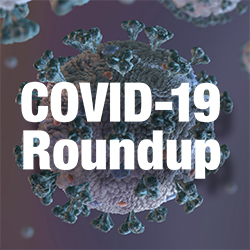By Landon Gray
Any U.S. national strategy of “new normal” for living with COVID-19 that does not address noncommunicable diseases (NCDs) would be a failure, health experts warned.
In a recently published article, researchers Jun Ma, MD, PhD, the director of the Vitoux Program on Aging and Prevention at the University of Illinois Chicago, and James Sallis, PhD, a professor in the Department of Family Medicine and Public Health at University of California, San Diego, are advising health officials against any proposal that fails to learn from two critical lessons health providers and researchers learned over the course of the pandemic. First, people with underlying NCDs have an increased risk for COVID-19 disease severity and mortality. Second, underserved communities—people of color—were most affected by the pandemic, with high case and death rates.

Almost 95% of adults hospitalized with COVID-19 in the United States in the first year of the pandemic had an underlying condition, such as obesity, diabetes with complications and anxiety, and the total number of conditions observed was the best indicator for COVID-19–related deaths. Studies have shown vaccinated people with NCDs—such as pulmonary disease, cardiac disease, liver disease, kidney disease, neurologic disease or diabetes—who suffered a breakthrough infection were 44% to 69% more likely to report severe outcomes.
“At this critical point in the pandemic, moving from crisis to control, failure to address NCD control and prevention as a national priority is unacceptable because it contradicts compelling evidence and misses the opportunity to use a whole set of effective intervention approaches that can save lives,” the researchers wrote.
Recognizing that the majority of medical and psychological chronic conditions are easily treatable but undiagnosed, Drs. Ma and Sallis suggested options that could implement NCD prevention and control within the already established national COVID-19 policies and response infrastructure:
- Prioritized screening programs in traditional medical settings as well as workplaces, schools, shopping centers and COVID-19 testing sites targeting NCDs.
- The mobilization of the national infrastructure used for vaccine promotion and distribution could be used to educate populations on proven lifestyle and behavioral health programs.
- National campaigns for self-protection against COVID-19 could include promotion of healthy lifestyles and mental well-being.
- Integrate behavior change interventions into routine healthcare delivery and coverage by expanding partnerships between medical systems and community-based organizations, and public and private insurers of the COVID-19 emergency response.
Partnering with community-based organizations would be essential to the inclusion of underserved communities across the country. “Partnering with community-based organizations and policy makers would be essential for prioritizing under-resourced populations and communities of color and dismantling structural racism and related upstream determinants as root causes of inequities in NCDs in general and in severe and fatal COVID-19 outcomes,” the researchers concluded.




